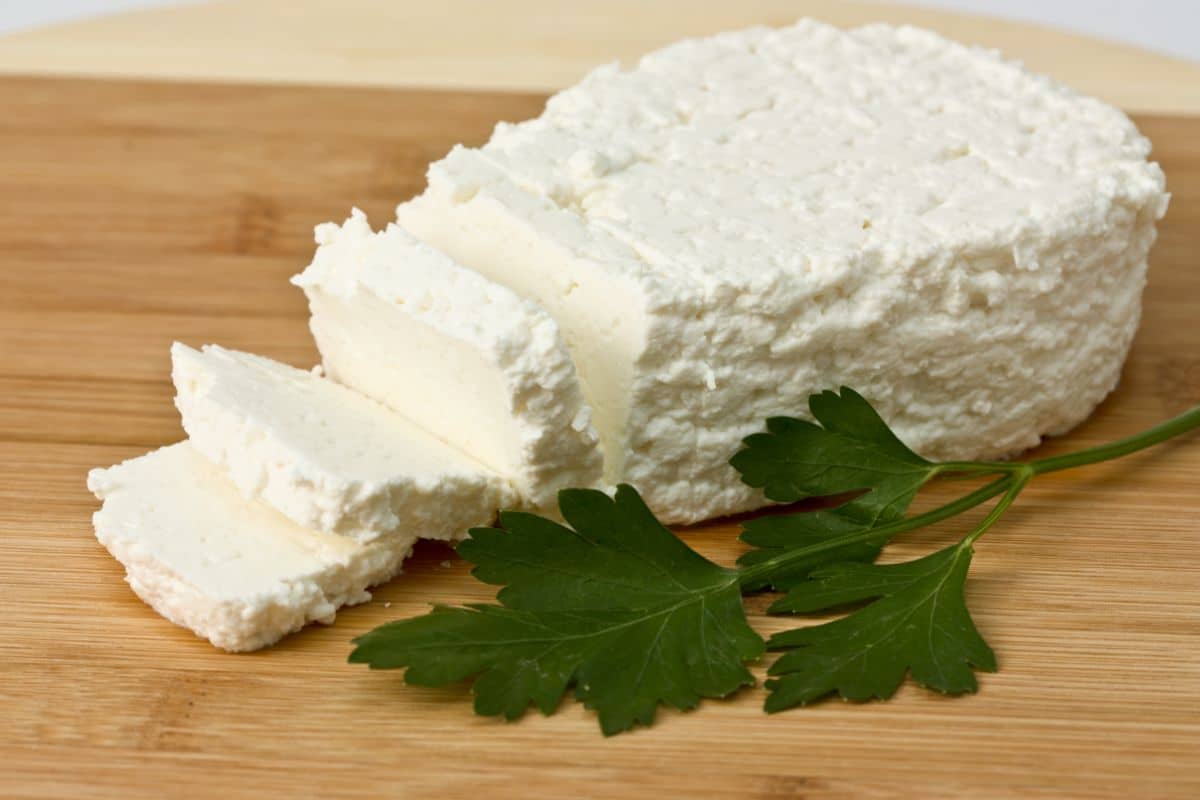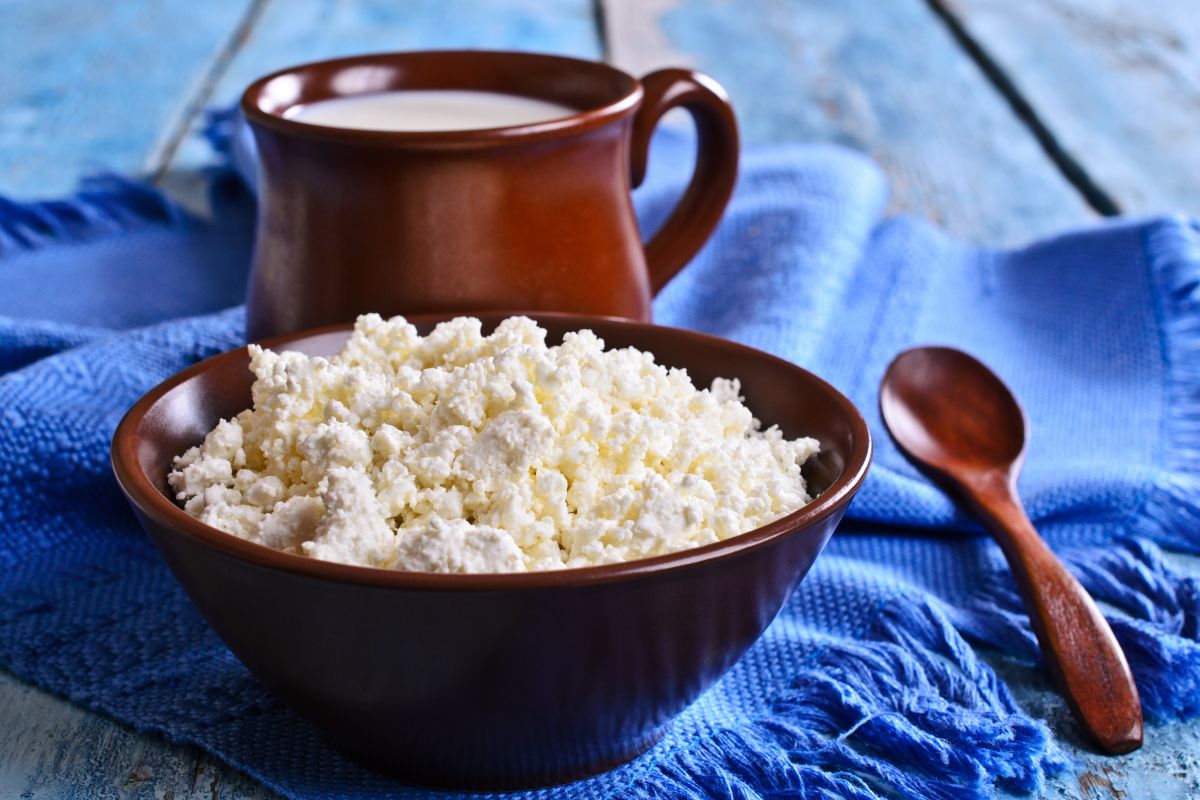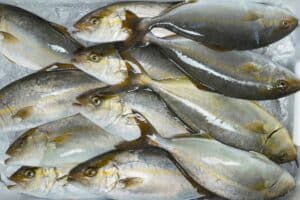Dairy products are incredibly popular, being consumed in almost every country on the planet, and loved for their wholesome, comforting, and filling properties.

One of the most popular forms of dairy is cottage cheese, something that might seem polarizing for some, but which has countless proponents that love it for its creamy goodness and taste. But what exactly is cottage cheese, and what does it actually taste like?
What Is Cottage Cheese?
Cottage cheese is a product produced from curdled milk. Known for its mild flavoring, and soup-like texture, cottage cheese is generally considered to be a fresh cheese dressing of sorts, and can be included with salads, dried crackers, bread, and other food items.
It stands as one of the oldest forms of cheese in the world, with references to the substance being mentioned in Homer’s Odyssey – suggesting that the food product was widely known and used within Ancient Greek culture.
However, the exact origin date is unknown and widely debated – with some claiming that, while cheese originated in the Middle East in 5000 BC, it was also referenced and used earlier than that in mainland Europe.
What Is Cottage Cheese Used For?
Cottage cheese is served in numerous ways, and is very much dependent on the country and cuisine in which it is consumed. Most commonly though, it is consumed with fruit, yogurt, granola, in salads, as a dip, and even in place of mayonnaise – where it is seen as a great low fat option.
What Does Cottage Cheese Actually Taste Like?
While the actual taste might be hard to pin down, cottage cheese is widely considered to possess a milky, creamy, natural yogurt taste – which is why it lends itself to so many different dishes on either side of the sweet/savory divide.
It is also known for a slight salty taste, which is often compared to Greek cheeses like feta and goat cheese – both of which are somewhat similar in appearance and consistency, and which are produced in similar ways to cottage cheese.
Does Cottage Cheese Taste Nice?
There is perhaps no form of cheese or dairy product that is as polarizing as cottage cheese – with many finding it to be gross or unpleasant in some way, usually due to the consistency and appearance that it has.
However, there are also countless people who love cottage cheese, and incorporate it into their diet in numerous ways. As such, there is an argument that it does actually taste nice, if you can get past the sometimes unpleasant appearance.
How Is Cottage Cheese Made?
Ever since the early 1930s, cottage cheese has been made industrially using skimmed milk.
Perhaps strangely, cottage cheese is made when a lactic acid producing bacterial culture (as well as rennet) is added to skimmed milk, and heated until it reaches temperatures of 90 degrees fahrenheit.
This then maintains the temperature for around 8 hours, after which the curds and whey are separated. The curds are the solid, gelatinous fats that float to the surface, and the whey is the liquid substances within cheese.
During this process, the curds are often sliced with cheese wire, allowing more whey to be separated out. It is then reheated for approximately 2 hours at 120 degrees fahrenheit, after which the curds are separated once more, salted, dressed with cream, and finally packaged.
What Other Variations Are There?

As well as traditional cottage cheese produced from skimmed milk, there are also nonfat milk, and reconstituted nonfat dry milk variants that are also used.
These are designed as lower fat and lower dairy variants for those who are looking to watch their weight or limit their dairy intake, and are also very popular amongst cottage cheese fans. However, all of these variations are made in exactly the same way, and use the same processes.
Does Cottage Cheese Have Health Benefits?
As you might imagine, there are also many health benefits associated with cottage cheese – many of which make it a vital and useful part of anyone’s diet.
Rich In Protein
As mentioned above, cottage cheese is rich in protein, which has numerous benefits for muscle development, muscle maintenance, and general dietary health.
High In Nutrients
Cottage cheese is also high in nutrients, and as such it is recommended for pregnant women – namely because they end up losing more nutrients during their pregnancy.
One example is the high calcium levels found in cottage cheese, which can be good for dietary needs and development of both the mother and the unborn baby.
These calcium levels also make it beneficial for everyone though, helping to maintain and strengthen bones and teeth – something that is equally as important in youth as it is in old age.
Prevents Osteoporosis
Cottage cheese is also thought to be beneficial in preventing osteoporosis – something is caused by natural (and unnatural) losses in bone density, and is something that can become more problematic as we age.
Poor bone density can lead to breaks and fractures becoming more common, and as such, introducing good sources of calcium and nutrients into your diet can be a good way to bolster your system against the perils of aging.
Contains Vitamin B-Complex
Cottage cheese is also rich in vitamin B-complex – vitamins that are required and beneficial for numerous biological functions throughout the body, and which include vitamin B12, riboflavin, pantothenic acid, thiamin, niacin, and folate. These each have numerous benefits, for example:
- Vitamin B12 is good for improving and sustaining brain function
- It is also good for absorbing iron from food
- Riboflavin helps convert carbs into energy
- Pantothenic acid helps us to synthesize proteins, fats, and other useful compounds within our bodies
- Thiamin helps convert sugar to energy
- Niacin helps digestion, reduces cholesterol, and promotes energy
- Folate helps with fetal development during pregnancy
Rich In Vitamin A
Cottage cheese is also rich in vitamin A, which has many benefits for our health and wellbeing. These include:
- Regulating cell growth
- Monitoring cell division
- Producing white blood cells
- Maintaining bone density
High Levels Of Minerals
As well as calcium, there are also numerous minerals found within cottage cheese – all of which are vital for proper bodily health and functionality.
Cottage cheese is rich in phosphorus, zinc, and potassium – which are good for forming bones and teeth, making proteins, and encouraging a healthy heart rate respectively. Each mineral also holds other benefits for the body that cannot be ignored.
Rich In Good Fats
Cottage cheese is also rich in good fats – that is, unprocessed, unsaturated fats that are actually considered beneficial to the body.
These good fats are useful for keeping us full and energized for the day, as well as having a hand in various important functions – such as maintaining good heart rate, proper blood vessel constriction, effective blood clotting, and nervous system activity.
What Are Some Other Benefits?
Some other benefits of cottage cheese include:
- Preventing strokes
- Good sodium source
- Improving digestion
Is Cottage Cheese A Healthy Snack?
One of the main benefits of cottage cheese is that it is considered a healthy snack – something that is unusual for dairy products like cheese. Despite this, cottage cheese can be a great addition to meals, and a great source of nutrients and minerals during the day.
Final Thoughts
It’s true that cottage cheese is a popular food, and one that is used within numerous dishes all around the world.
Packed with plenty of goodness, and laden with flavor, this food has numerous applications, and it isn’t hard to see why it remains a staple for many. So if you are looking to branch out with dairy, then why not give cottage cheese a try?
Frequently Asked Questions
Now that we know a little more about cottage cheese, and what exactly it tastes like, it is now time for us to answer some frequently asked questions that you might be interested in.
This depends entirely on the type of cottage cheese you have, and the portion size that you consume at each sitting. There are generally plenty of low fat options, and these are the best choices for those concerned about weight gain.
Yes, cottage cheese does have nutritional value – namely with regards to protein, of which it contains high levels.






